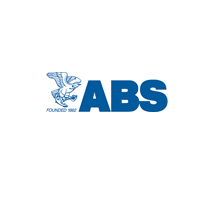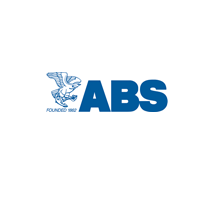ABS Guide for Design & Operation of High Voltage Shore Connections
The use of shoreside power is becoming increasingly popular among ports and terminals seeking to reduce local air pollution emissions. While work to develop internationally-agreed standards for high voltage connections continues, ABS has released a Guide for High Voltage Shore Connection to address key safety concerns as well as design considerations for shipboard installations. “Cold ironing will continue to grow in importance as more ports around the world install facilities to accommodate this alternative source of auxiliary power,” says Yoshi Ozaki, ABS Director of Environmental Technology. Cold ironing is the practice of shutting down a vessel’s generators while in port and using shoreside power to supply electrical loads.
ABS Provides Guidance For Gas Fuelled Ships

With rising fuel costs and today’s global interest on emission reduction, liquefied natural gas (LNG) is considered a promising alternative fuel for all type of ships. In response to industry’s need for technical guidance for new construction and existing vessel conversion, leading class society ABS announced today the release of its Guide for Propulsion and Auxiliary Systems for Gas Fuelled Ships. The new ABS Guide, considered to be the most comprehensive available to the industry…
ABS Provides Guidance For Gas Fuelled Ships

With rising fuel costs and today’s global interest on emission reduction, liquefied natural gas (LNG) is considered a promising alternative fuel for all type of ships. In response to industry’s need for technical guidance for new construction and existing vessel conversion, leading class society ABS announced today the release of its Guide for Propulsion and Auxiliary Systems for Gas Fuelled Ships. The new ABS Guide, considered to be the most comprehensive available to the industry…
SNAME Focused Panel Sessions, 2009 Meeting
The focused panel sessions at the Society of Naval Architects and Engineers (SNAME) Annual Meeting and Expo (October 21-23 at the Rhode Island Convention Center in Providence, Rhode Island) will feature four timely topics: Electric Ships; Renewable Energy from the Oceans; Unmanned and Autonomous Ships of the Future; and Ship Efficiency in the Greenhouse Gas Era. Each two-hour panel session will be chaired and moderated by experienced SNAME members. Each session will have three leading experts who will make thirty minute presentations on their area of expertise, followed by a moderated thirty minute discussion period which will include questions and answers from the audience.
ABS Guidance for Ballast Tank Inert Gas Systems
A major step forward in tanker operation safety was taken as ABS announced technical guidance for inert gas systems for ballast tanks. Compliance to the guidelines leads to the class notation IGS-Ballast. ABS is the first society to set standards and offer a notation for complying with design criteria and procedures for inerting ballast tanks on double hull tankers. The timely introduction of the ABS Guide For Inert Gas System For Ballast Tanks addresses industry concerns regarding the potential leakage of volatile gases from oil laden cargo tanks into the ballast or void spaces. This concern has been further heightened as double hull tanker configurations become the standard with mandated phase in by 2010.
News: ABS Guidance for Ballast Tank Inert Gas Systems
A major step forward in tanker operation safety was taken as ABS announced technical guidance for inert gas systems for ballast tanks. Compliance to the guidelines leads to the class notation IGS-Ballast. ABS is the first society to set standards and offer a notation for complying with design criteria and procedures for inerting ballast tanks on double hull tankers. The timely introduction of the ABS Guide For Inert Gas System For Ballast Tanks addresses industry concerns regarding the potential leakage of volatile gases from oil laden cargo tanks into the ballast or void spaces. This concern has been further heightened as double hull tanker configurations become the standard with mandated phase in by 2010.






